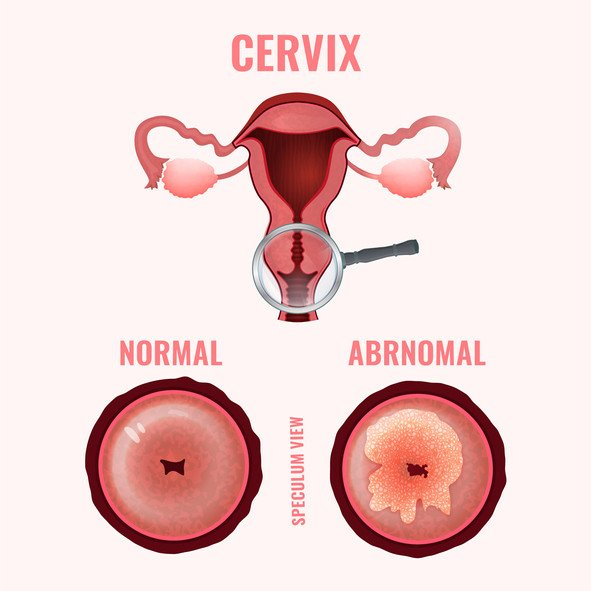The majority of ovarian/fallopian tube tumours, according to new research, are high-grade serous tumours (HGSC). In most cases, cancer originates at the distal, or outside, end of the fallopian tubes. Then it spreads beyond the surface of the ovaries. Call and book your appointment with the best obstetrician in Gurgaon Dr.Amita Shah.

What are the Ovarian Cancer Symptoms?
Most ovarian malignancies begin in the epithelium, or outer lining, of the ovary. In the early stages, there may be few or no symptoms. These symptoms may be confused with premenstrual syndrome, irritable bowel syndrome, or a temporary bladder infection. If these symptoms are not treated, they can worsen and lead to ovarian cancer.
Ovarian cancer symptoms can appear at any stage, although they are more common in the later stages when tumours press against the bladder, uterus, and rectum.
ovarian cancer symptoms:
- Bloating
- Abdominal or pelvic pain
- The feeling of fullness soon after eating
- Urge to urinate
Other signs include:
- Stomach discomfort or indigestion
- Fatigue
- Constipation
- Backache
- Pain while having sex
- Changes in menstruation
- Swelling in the abdomen
Is it possible to prevent ovarian cancer?
There are currently no screening tests available to check for ovarian cancer regularly.
Some healthy women who are thought to be at high risk of getting ovarian cancer may elect to have their ovaries removed (a treatment known as a preventive bilateral oophorectomy) to lessen their risk. Women with a strong family history of ovarian cancer and those with a genetic mutation that enhances their risk of acquiring ovarian cancer are at a higher risk of developing the disease. If you are concerned about your risk, you should speak with your doctor about your options.
How to detect Ovarian Cancer at an early stage?
Only around 20% of ovarian malignancies are discovered at an early stage. Once a woman notices any of the above-mentioned symptoms and seeks quick medical assistance, there are several screening tests available to detect cancer at an early stage.
Ovarian Cancer Early Detection
Health examinations regularly
During a pelvic exam, the health care professional examines the ovaries and uterus for size, shape, and functionality. While a pelvic exam can detect certain female cancers early on, the majority of early ovarian tumours are difficult or impossible to detect. Pelvic examinations, on the other hand, can help discover other malignancies or female problems. Women should consult their doctors to determine whether these tests are essential.
Cervical cancer screening techniques, such as the Pap test or the HPV (human papillomavirus) test, may be ineffective in detecting early-stage ovarian cancer. They may be in an advanced stage when they are screened with the Pap Test.

Ovarian cancer screening tests
Screening tests, particularly cancer screening tests, are used to diagnose diseases in people who have no symptoms.
Transvaginal ultrasound (TVUS): A type of imaging test that employs sound waves to detect tumours in the reproductive organs, especially the ovaries, is TVUS. However, it cannot assist doctors in evaluating whether tumours are malignant.
Abdominal and pelvic CT scans: These are imaging techniques that look within the ovaries to see if there are any cancer cells or abnormalities. If a patient is allergic to dye, a pelvic MRI scan may be recommended instead of an abdominal and pelvic CT scan.
CA-125 cancer antigen blood test: CA-125 is a biomarker that is used to assess therapy response in ovarian cancer and other malignancies of the reproductive organs. It is a blood test that evaluates the levels of cancer antigen 125 (CA-125). Menstruation, uterine fibroids, and uterine cancer can all affect CA-125 levels in the blood.
Biopsy: A biopsy is a technique in which a small sample of tissue from the ovary is collected and examined under a microscope.
Treatment
Surgery is often the first-line treatment for ovarian cancer and may include operations such as aggressive debulking surgery and robotic approaches. Non-surgical therapies like chemotherapy and hormone therapy may also be considered.
Chemotherapy
Chemotherapy for ovarian cancer is often administered orally (by mouth), intravenously (through a vein), or directly into the abdomen via a catheter in a procedure known as intraperitoneal chemotherapy.
Ovarian cancer refers to cancers that begin in the cells of the ovary, fallopian tube, or peritoneum. The cancers are closely linked and are treated in the same way. Certain cancers occur when healthy cells in these places begin to alter and grow out of control, resulting in the formation of a tumour. Tumors can be malignant or benign. A malignant tumour can grow and spread to other parts of the body. The term “benign tumour” refers to a tumour that can grow but does not spread.
Hormone replacement treatment
Hormone therapy deprives ovarian cancer cells of the hormones they require to proliferate, such as oestrogen.
Ovarian cortex cryopreservation
Ovarian cortex cryopreservation is the procedure of storing ovarian tissue before cancer treatment so that women can conceive children later in life.
Surgery
Surgery is frequently used as the first-line treatment for ovarian cancer. There may be several surgical alternatives for removing ovarian tumours, including fertility-saving operations.
Targeted therapy
PARP inhibitors, which are targeted treatment medications that are designed to prevent tumour cells from repairing themselves, are frequently used to treat ovarian cancer. Schedule your appointment with Dr. Amita Shah one of the best Fibroids doctors in Gurgaon.
































